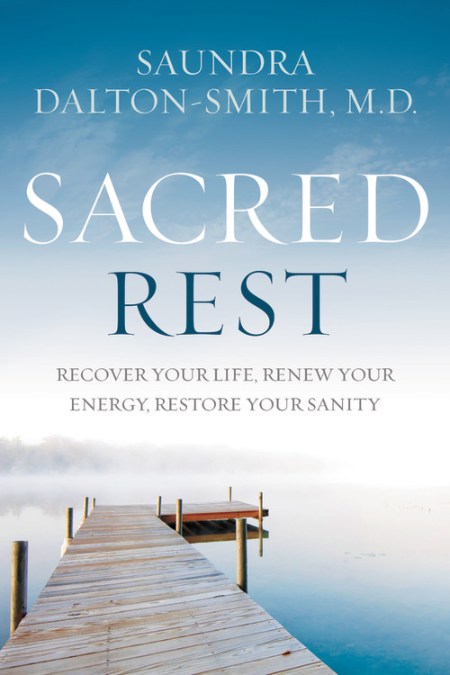 Rest. It seems like such a hard thing to do, especially in the middle of a busy season. It seems like I constantly hear "well, it's a busy time of year" - no matter what time of year it is. Winter holidays, summer sports, back-to-school - it all creates busy-ness.
Rest. It seems like such a hard thing to do, especially in the middle of a busy season. It seems like I constantly hear "well, it's a busy time of year" - no matter what time of year it is. Winter holidays, summer sports, back-to-school - it all creates busy-ness.But rest is important. We all know it, and a recently-released book I got to review, Sacred Rest, reminds us why it's important, physically, mentally, and spiritually.
This book breaks down what rest is. There are actually seven types of rest - rest doesn't just mean physically stopping our bodies, but resting other parts of ourselves too. We need rest physically, mentally, spiritually, emotionally, and socially - and we also need creative and sensory rest. Having a deficiency in any of those areas can affect our health in other areas.
It can be hard to justify needing time to rest to others. This book shows readers why it's important to do so. Scientific research plus personal stories, along with Biblical reasoning, gives readers the tools they need to defend and guard their rest.
Dr. Saundra Dalton-Smith is an author, speaker, and board-certified physician. She has an active medical practice in Alabama (near the Birmingham area). She received her B.S. in Biochemistry at the University of Georgia, and graduated with honors from Meharry Medical College in Nashville. She has been an adjunct faculty member at Baker College and Davenport University in Michigan teaching courses on health, nutrition, and disease progression. Dr. Dalton-Smith is a national and international media resource on the mind, body, spirit connection and has been featured in Women’s Day, Redbook, and First For Women magazine. She is the author of Set Free to Live and Come Empty (winner 2016 Golden Scroll Nonfiction Book of the Year and 2016 Illumination Award Gold medalist). She is a member of the Christian Medical and Dental Association and a repeat keynote speaker at their annual gathering. She has shared her tips on merging faith and medicine with over 16,000 health care professionals to encourage the current and next generation of doctors to treat the whole person.

No comments:
Post a Comment